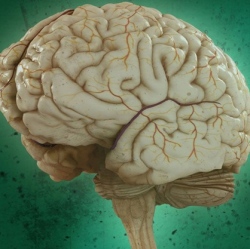
In a meta-analysis published in European Neuropsychopharmacology, researchers from the University of Oxford and Harvard Medical School concluded that a drug called modafinil, which is typically used to treat sleep disorders, is a cognitive enhancer. Essentially, it can help normal people think better.
Out of all cognitive processes, modafinil was found to improve decision-making and planning the most in the 24 studies the authors reviewed. Some of the studies also showed gains in flexible thinking, combining information, or coping with novelty. The drug didn’t seem to influence creativity either way.
“What emerged was that the longer and the more complex the task, … the more consistently modafinil showed cognitive benefits,” said Anna-Katharine Brem, a neuropsychologist at Oxford and one of the paper’s authors, in an email. Surprisingly, the authors found no safety concerns in the data, though they caution that most of the studies were done in controlled environments and only looked at the effects of a single dose.
Modafinil is one of an arsenal of drugs, which includes Adderall, Ritalin, and Concerta, that are increasingly used “off-label" by college students and adults seeking greater productivity. Just 1.5 percent of adults aged 26 to 34 were taking ADHD medications in 2008, but that number had almost doubled to 2.8 percent in 2013, as FiveThirtyEight points out. Though these drugs treat real medical conditions, ADHD, in Adderall’s case; narcolepsy, in modafinil’s, many of the people who take them don’t have those conditions.
There is a coming debate over the ethics of smart drugs. Currently, people require psychiatric diagnoses in order to be prescribed any of these pills. But if these medicines are ultimately found to be safe, and they work for almost everyone, should anyone be able to take them?
And if modafinil does become more widespread, where does it end? Will we soon be locked in a productivity arms race, pumping out late-night memos with one hand while Googling for the latest smart-drug advancement with the other? Some sports organizations, for what it’s worth, already ban the use of these drugs without an ADHD diagnosis for the same reasons they ban steroids and other performance enhancers. Will employer drug tests soon screen for off-label modafinil use? Or on the contrary, will CEOs welcome the rise of extra-sharp workers who never need sleep?
These are not hypothetical questions. Between technological enhancers like computers and pharmacological ones like modafinil, more and more products are coming to market that will give well-heeled, busy consumers the means to become even more so. More agents for neuro-enhancement are undoubtedly on their way.
